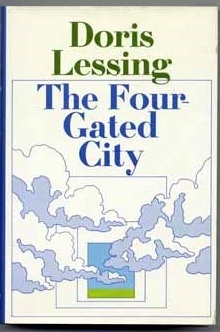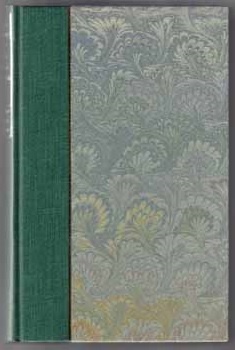Doris Lessing is widely considered to be one of Britain's most notable writers. She penned over fifty books of varying genres, including novels, short story collections, books of poetry, a comic, plays, and even a short series of books on cats. Throughout her impressive and long career, Lessing earned the W.H. Gibson Literary Award, the Los Angeles Times Book Prize, the David Cohen Prize, the S.T. Dupont Golden PEN Award, among others. In 2007 she became the eleventh woman and the oldest recipient of the Nobel Prize in Literature. She declined damehood in 1992 but accepted appointment as a Companion of Honor in 1999.
 Lessing was born in Iran in 1919 to a World War I veteran and a former war nurse. Shortly after her birth, her family moved to the British colony Southern Rhodesia, now Zimbabwe, where her father had purchased land for farming. She quit school at thirteen and at fifteen began working as a nursemaid. It was during this period of employment that much of her self-education took place. She was allowed to read her employers books and found and discovered an interest in sociology and politics which led her to begin writing on her own and publishing short stories in magazines.
Lessing was born in Iran in 1919 to a World War I veteran and a former war nurse. Shortly after her birth, her family moved to the British colony Southern Rhodesia, now Zimbabwe, where her father had purchased land for farming. She quit school at thirteen and at fifteen began working as a nursemaid. It was during this period of employment that much of her self-education took place. She was allowed to read her employers books and found and discovered an interest in sociology and politics which led her to begin writing on her own and publishing short stories in magazines.
Her life changed when she joined the Left Book Club in early 1940s. She began spending more time with her fellow members and shortly after, divorced her husband to marry political activist Gottfried Anton Nicolai Lessing, also a member, whom she divorced six years later. Her first novel, The Grass Is Singing, was published in 1950 and focused on race relations in her home colony. While in many aspects controversial for the time, the book was an immediate success. In 1981 it was adapted into a film called Killing Heat.
 Lessing's fiction typically focused on political issues, often reflecting her opinions on colonialism. Her outspoken opposition to Apartheid got her banned from Zimbabwe and South Africa for many years. Her communist ideals can be seen in novels like The Grass Was Singing and The Good Terrorist (pictured at left).
Lessing's fiction typically focused on political issues, often reflecting her opinions on colonialism. Her outspoken opposition to Apartheid got her banned from Zimbabwe and South Africa for many years. Her communist ideals can be seen in novels like The Grass Was Singing and The Good Terrorist (pictured at left).
A portion of her career was devoted to writing science fiction novels, though she preferred the term “space fiction.” These stories were not well received by critics. Many considered the fact that she explored this genere to be a sort of artistic backslide or the actions of a sellout. However, Lessing defended her Canopus in Argos series and science fiction writers in general. Eventually the series grew to include five novels.
In 1977 The Doris Lessing Society was founded. They began by publishing a newsletter which eventually transformed into a peer reviewed academic journal, Doris Lessing Studies. The society remains active to this day, organizing panels at the Modern Language Association’s annual convention and other conferences. Twice they have organized their own conventions and continue to promote the study and examination of Lessing's work.









